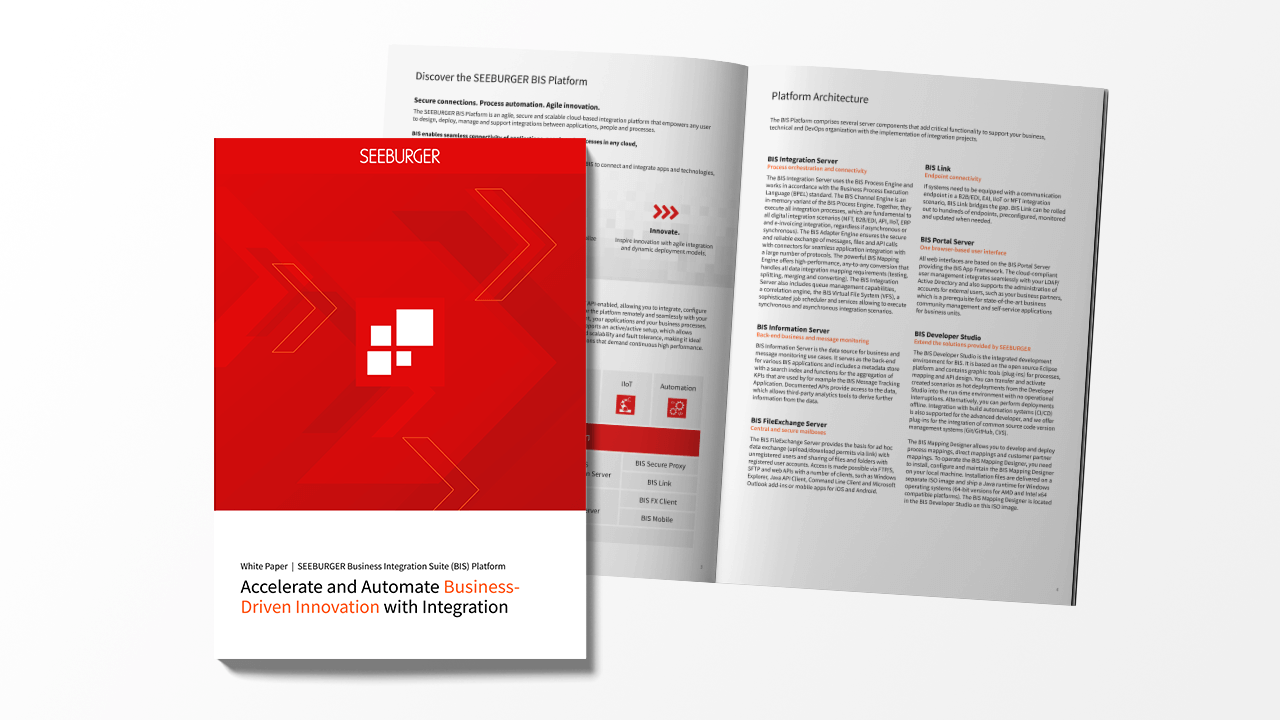
What Is the Meaning of Being EDI Capable?
EDI capability means the very smooth and easy exchange of electronic business documents in an agreed format with your EDI trading partners. To become EDI capable there are two options, either running an EDI solution on-premises in an own or 3rd party data center or buy the EDI capability as an EDI cloud service.
What Does EDI Capable Mean in a Classic Sense?
Electronic Data Interchange (EDI) plays an important role in the integration of external B2B systems and trading partners for the purpose of streamlined business communication without paper. EDI capability is typically expected in industries with a highly automated supply chain management and/or exchange of standardized business documents like offer, order, dispatch, invoice or inventory report. The exchange of messages between companies takes place along established business document standards typical for a certain industry and/or geography.
Define being EDI capable in 3 steps
The ERP (Enterprise Resource Planning) systems do not understand the EDI message standards natively. Thus structured data needs to come from the ERP of the sender in an internal format and must then be converted into the message standard before it can be sent to the receiver via the agreed communication protocol.
Classic EDI capability comes in 3 steps

EDI Capable
What Does EDI Capable Come From?
Any reasonable EDI solution today can do all of the above and combines these capabilities with a flexible BPEL Workflow Engine. After all EDI has been connecting trading partners and automating Supply Chain Management (SCM) for more than 40 years.
Particularly in supply chain-oriented industries, EDI sets the standard for exchanging information from system to system in electronic format with neither the need for paper nor manual processes. With EDI the data is exchanged in a structured form which, over time, has led to several EDI messaging standards in various industries and regions. EDI continues to dominate supply chain processes for the automotive, logistics, CPG and retail, manufacturing and utilities industries.
What Defines the Next Level of Being EDI Capable?
So most organizations that need to utilize EDI, already do so one way or the other. But often there is space for improvement.
State-of-art EDI achieves a high automation of business processes through standardization, automation, and simplification of critical data exchanges. It is not trivial to get and stay on such a level and keep cost under control. Examples for such supply chain management based on advanced EDI capability are Vendor Managed Inventory (VMI) in the CPG/Retail Industry and Just-In-Time (JIT) as well as Just-In-Sequence (JIS) in the Automotive Industry.
Such modern EDI provides a state-of-art governance, management, visibility, easy onboarding of EDI Trading Partners and the flexibility to switch from on premises to cloud and back at own pace.
How to Reach the Next Level of Being EDI Capable?
Work with a market leading provider for EDI solutions.
SEEBURGER connects any ERP and supports all EDI formats and communication protocols. SEEBURGER’s Business Integration Suite (BIS) can be operated on premises, in a cloud model (i.e. iPaaS) or as a mixture of both.
We are experienced in increasing the EDI capability amongst our many clients (over 10,000) by bridging their interoperability gaps. BIS is a Hybrid Integration Platform (HIP) solutions that can not only modernise and consolidate EDI, but also supports your future requirements by way of: full lifecycle API management and API integration, e-Invoicing, a flexible rules-based approach and much, much more.










